- Home
- Kay Hooper
Wait for Dark Page 2
Wait for Dark Read online
Page 2
“I doubt Sue was sorry,” Emma offered. “At least they had a lot of good years together before . . . this.”
Mal nodded, still clearly preoccupied.
“What are you thinking?”
He looked at her for a moment as if he didn’t see her, and then obviously brought her into focus. “My gut tells me there’s something we’re not seeing in all this, some kind of connection. And I’m thinking it’s time we called in someone who sees a lot more weird crimes than we do.”
Startled, Emma said, “Crimes? Aren’t they accidents?”
“Any one of them taken alone—possibly excepting this one—I’d probably agree with you, except for one thing they all have in common. Maybe this one too, maybe not. As far as this possible accident goes, somebody else could have been in the cab and managed to run Brady over, and if so that makes it murder or manslaughter. Realistically, that’s the only way this could have happened, given the way the machine operates, with the teeth pulling up, grinding and stripping what’s below the machine, not above it. But nobody else was seen, and way out here they should have been. Even at night.”
“Fingerprints in the cab?” Emma suggested hopefully.
“We’ll print it, but I’m not expecting to find any strange prints in there. With all the crime stuff on TV and movies, only a moron would forget to wear gloves.”
“Brady didn’t have any enemies that I know of,” Emma said.
“Me either. Never heard anything but good of him, and that was my experience with him. I certainly can’t think of an enemy pissed enough to consider this as a way of dealing with his grudge or anger. And there’s another thing bugging me about this one.”
Emma thought she’d had quite enough of inexplicable things but asked anyway. “What?”
“Nobody heard him scream.”
Emma swallowed hard, really wishing she hadn’t had that sausage biscuit for breakfast, and said reluctantly, “Maybe there was no time. If he went in headfirst . . .”
Scowling now, Mal said, “What it looks like is something impossible. It looks like he was held by that one hand or arm, dangled above the blades—and slowly lowered into them. Literally fed into the machine. Slowly enough that when the blades stopped turning, only that one arm hadn’t been forced in.”
She eyed the distances involved, then said, “I just don’t see how anyone could have done that. There’s no room in front of the cab or even a good place to stand, never mind holding a full-grown man out several feet over the blades of a moving machine and—and feeding him into them.”
“Yeah. And it’s not the way the machine works. Or is supposed to work. So did somebody rewire something? Reverse the blades, the engine, something? And say that was done, how did the machine keep on operating with nobody in the seat? Was there more than one person involved? And even so, even if they managed to change the way the harvester operates and somehow feed him into it, how was his arm the only limb or other body part to survive mangling?”
Emma swallowed hard, trying to get horrific images out of her head. “I don’t know anything about engines. But it seems to me it wouldn’t be easy to . . . change the way they were made to operate.”
“No, I don’t think it would be. Hank doesn’t think it would be, and he knows this machinery. Like I said, on its own, this doesn’t make any sense. Along with the other . . . incidents . . . it makes even less sense. None of it makes sense.”
Belatedly, Emma remembered something Mal had said. “Except for one thing. You said except for one thing all these accidents have in common. Because it’s all been machines?”
“I wouldn’t call a plain charcoal grill a machine.”
Neither would Emma. “Okay. But you said one thing all the accidents have in common. You know something I don’t?”
“You noticed the same thing. They all had cell phones, and none of their cell phones have been found.”
“Well . . . except for Karen Underwood and that elevator, all the victims have been pretty much . . . destroyed. So maybe their cell phones were burned or—or shredded.”
“Maybe. Maybe destroyed on purpose.”
Emma blinked. “Why?”
“To hide something.” Mal shoved his hands in the front pockets of his jeans and hunched his wide shoulders. “So I finally did what I should have done from the beginning. I had their cell records pulled and sent to me.”
“I haven’t seen them.”
“No. Came in late yesterday, after your shift. And now I’ll have to pull Brady’s too. If I find the same thing . . .”
“What? What thing?”
“The afternoon before each of their deaths, Clara Adams, Jeremy Summers, and Karen Underwood all received, exactly at three o’clock, the same text message, each from an unknown number, probably a burner.”
“What did the text say?”
“Wait for dark. That’s all. Just . . . Wait for dark.”
—
IT WAS A sort of game.
He hadn’t really thought about it in those terms at first. Maybe because the first accident had been . . . personal. Some might call it revenge.
He preferred to think of it as justice. And if his thoughts went a little fuzzy when he thought about it at all, well . . . what was there to think about? There were steps he had to follow, a path he had to follow to . . . Well, he wasn’t sure where it would lead him eventually.
But he knew he had to follow it, that path. Take each step as it came, each turn, each twist. Listen to the deep, soothing voice in his head that encouraged him when he faltered.
When the fuzziness in his mind cleared just enough to show him things that made him uneasy. Things that frightened him.
The voice was always there. To calm him. To make it all peaceful and certain once again.
Even so, he hadn’t expected to feel what he had felt that first time. Watching the car crash and burn, watching the heroic efforts to rescue Clara Adams. Unsuccessful efforts.
The flames, the cries of horror. The shattering glass and smell of melting plastic and rubber. And burning flesh. Wailing sirens.
The fuzziness in his mind had retreated then, but all his attention had been riveted on the wreck. And his own excitement.
It had all been . . . unexpectedly satisfying. Even mesmerizing. All bright colors and sharp sounds and acrid smells. Like a dream. Like, he supposed, someone’s nightmare.
Even later, when he found out that Clara’s heart, apparently a time bomb in her chest from childhood due to some defect, had stopped beating before her car struck the pole and burst into flames, it had only diminished his satisfaction a bit.
She had known what was coming.
She must have known. Because he had been told.
Because he’d had his instructions.
Hacking into her car’s electrical system had been easy for him; electronics were easy. A car, an elevator, a hulking piece of farm equipment. Ironically, the most difficult had been the tricky matter of arranging for a simple charcoal grill to explode. That had taken ingenuity. That had, if he was honest, taken more help, more instruction, than the others.
Still, he trusted that someday his genius would be appreciated. That was the promise. That he would be known. That he would be famous.
But he didn’t think too much about that. Because the high he experienced wore off, and even though the fuzziness in his mind returned to soothe him, he hungered to feel that excitement again. And again. And there was, really, no end to the accidents he could arrange.
“You mustn’t rush things.”
The hand on his shoulder was large and heavy, and he didn’t look up. But he frowned. “Why not?”
“Everything must happen in its own time. You know that. I explained it to you.”
“Yes, but . . . the whole town’s shook up now. On edge. Just like you wanted.”
&nb
sp; “It’s enough for now. Enough for right now.”
“Why?” He heard the whine in his voice but was powerless to change that, to sound strong and certain. He never could.
“Because of the plan. You remember the plan.”
“Yes, but you said I could do her. And I haven’t yet.”
“Soon. All in good time.”
“But—”
“All in good time.” The heavy hand tightened.
The fuzziness in his mind thickened, until it was like a fog, a chill fog he knew he would never find his way through. Not alone. For an instant he felt frightened, but then that faded, and there was only the peaceful fog, parting to show him the path he had to walk.
“Everything in its own time.”
“Yes. Yes, I understand.”
His list, their list, was a long one.
A list for justice. Because he deserved that much, they both did.
At least that much.
And once everyone knew, once everyone understood, he was certain they would agree with him.
Justice.
And if they didn’t agree, well . . . he supposed the path could be a long one. With interesting twists and turns.
After all, they had time.
They had all the time in the world.
—
AFTER A LONG moment, and hoping it wasn’t obvious that the fine hairs on the back of her neck were standing straight out and her skin was covered in gooseflesh, Emma said, “Okay, that’s weird. The text is weird. Where did it—they—come from?”
“Like I said. Unknown number, no name. A burner.”
“But . . . from here?”
“I’m not sure. Those burners can be programmed to show any number located just about anywhere for the source of the call. I haven’t asked the cell company to try to give me some kind of triangulation. All I know is that every text message was exactly the same.”
“Okay. More than weird. That’s . . . I don’t know what that is.”
“Neither do I. Which is another reason I think it’s time to call in outside help.”
“You’ve already called in that expert on farm machinery to look at—this. So he can tell you how this happened?”
“More or less. I can’t explain why, but something about this, about the way the blades are positioned, just doesn’t look right to me, and how it apparently killed Brady sure as hell doesn’t seem right. Hank knows it’s wrong, but I’d rather not involve him in this part of the investigation.”
“He’s been through enough,” Emma murmured.
“Agreed. But I don’t know enough about farm equipment to know for sure something’s wrong. That this death, among all the others, really does stick out as something . . . that doesn’t seem possible. The way it apparently happened doesn’t seem possible. So I need an expert.”
“I hope you warned him,” Emma said.
“As much as I could. Actually, I only had to begin talking about a harvester that killed someone; I’m pretty sure his own experience and imagination took it from there.”
“Jeez, are there that many farm accidents like this?”
“I doubt like this, but wherever there’s big machinery designed to cut and crush and mangle, there are bound to be accidents. He didn’t seem all that surprised that a harvester could have killed someone, so maybe it’s more common than we know.”
“Not a kind of experience I’d want,” Emma volunteered. She hadn’t wanted all this experience with death, either, but that was the risk she ran in becoming a deputy. Even a deputy in a small town where nothing ever really happened.
Usually.
“No. Me either.” Mal brooded, half turned so he could look out over more than half a field of corn still standing.
“Are you going to call in an outside crime scene unit? Since we don’t really have one, I mean.”
“Too much after the fact for the other . . . incidents. Any evidence would have been burned or else trampled on by us, the rescue unit, bystanders trying to be helpful, and God knows who else. As for this one . . . my bet is anything behind the machine or still inside it won’t help us. Maybe his arm will.”
Emma blinked. “His arm?”
“I don’t see any bruising, but if he died quickly enough there wouldn’t be any. Still, a good ME might be able to tell us something we can’t see for ourselves.”
“We don’t really have an ME either,” she pointed out.
“Apparently never needed one. None of the local doctors trained in forensics beyond the basics of being able to perform autopsies. And nobody wanted another elected position in Clarity, so they decided against having a coroner as well.”
With a slight grimace, Emma said, “I’ve always been a little surprised we have an elected sheriff rather than an appointed chief of police.”
“I’m not. Accountability.” Mal’s voice was wry. “The mayor and town council wanted to make sure theirs weren’t the only elected heads on the chopping block if the citizens got upset enough to feel the need to vote somebody out of office.”
“Especially if something like weird accidents that are maybe something else started happening?”
“Something like, yeah. So I’ve already called the Office of the Chief Medical Examiner in Chapel Hill.”
“When’d you do that?”
“While you were waiting with Sue for her sister to come stay with her.”
“Okay. Are they sending someone?”
“Apparently, docs trained as medical examiners are part of a network all over the state. More efficient that way, since being an ME in a small town like Clarity wouldn’t even be a full-time job. Most of the docs with special training in forensics work in the big hospitals and medical centers, where they get plenty of varied experiences every day, and then get temporarily assigned to law enforcement agencies as needed. We got lucky; the trained doc in Asheville grew up on a big farm and specializes in deaths involving farming and other dangerous machinery.”
Emma said, “That sounds fairly grisly. For a job, I mean. When’s he due to arrive?”
Mal smiled faintly. “She is due to arrive within the next hour. Dr. Jill Easton. With an assistant, she told me, and whatever equipment and tools she believes she’ll need based on my description of these . . . events.”
“Will they be staying here for very long?” Emma asked tentatively.
“I don’t know. I do know I want the doc to look at the other incident reports, especially the photos, in case she sees something we missed. Something only a specialist in forensics might see. And I don’t know how long it’ll take her—them—to get whatever blood and tissue they need from whatever happened here. Plus, she doubles up: does her own lab work onsite, in the closest clinic or hospital facility. Anything up to DNA testing, but she also sends samples to the state lab for tests and to verify her results. I have no idea how long any of that will take her and her assistant. So I’ve booked them into Solomon House, no departure date. Downtown might not be the ideal location, but the inn is nicer, and the motel nearest to the hospital is fully booked. Some kind of medical seminar or something.”
Emma studied him for a moment, then said, “You’re thinking of calling in someone else, aren’t you? Not just an ME?”
“I am, yeah.”
“So who are you planning to call in?”
“There’s an FBI unit I’ve heard about. Not a lot of information through official channels, but plenty being quietly passed among law enforcement officials now that we’re finally getting smart and doing more networking, sharing info or at least uploading routinely to state and federal databases like ViCAP, CODIS, and AFIS. Anyway, far as I can tell, investigating the weird and inexplicable is apparently the specialty of this unit. And they have the reputation of getting to the bottom of any situation in record time.”
Emma glanced ov
er at the hand and partial forearm jutting up from bloody blades, then looked hastily back at the sheriff. “Then I say let’s call them. Before another machine or piece of equipment gets weird with one of us, up close and personal. And before anyone else gets an enigmatic text message.”
TWO
Quantico
Friday
Special Agent Hollis Templeton studied the last page of the fourth report, then closed the folder and rested one slender hand on the stack, long fingers drumming restlessly. Her nails were very short, the thumbnails slightly ragged due to a bad habit she couldn’t seem to break, so the drumming was quiet. “I don’t get it. Why call us in for accidents?”
She was a woman of medium height and almost slight build, with no-fuss short brown hair and eyes an unusual and striking shade of blue. Her face was memorable without being in any way remarkable, her emotions generally clearly visible and lending animation to her regular features.
“If that’s what they are,” her partner, Special Agent Reese DeMarco, said slowly, his gaze still on the open file before him. He was a very big man with wide shoulders and an athletic build, his face coldly handsome perfection, almost as if carved in marble by a master’s hand, and not a bit softened by shaggy blond hair and watchful pale blue eyes.
“What are you seeing that I’m not?” Hollis demanded, her tone more questioning than challenging. “A car accident, a guy using too much lighter fluid in his grill, an old elevator with worn brakes and controls that shorted out, and now a very dangerous piece of farm machinery run amok. All those sound like accidents. The local sheriff even wrote them up that way. He might have hedged a bit with the combine harvester thingie, which does stand out as weird, but he still can’t point to anything showing deliberate intent, by the operator or someone else, to cause any of this to happen. No signs of tinkering or tampering, that’s in his reports—and I assume he’d know what to look for or has someone in a farming community there or nearby who would.”
“He called us,” DeMarco said. “Maybe he believes something really unusual is going on, something too unusual to put into his reports. Maybe something paranormal.”
“We used to be the Bureau’s guilty secret,” Hollis said wryly. “Now it seems everyone knows our name. And our specialty. Oh, for the good old days.”

 A Deadly Web
A Deadly Web Raven on the Wing
Raven on the Wing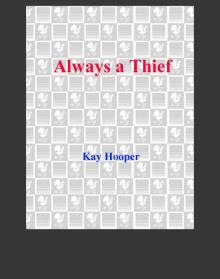 Always a Thief
Always a Thief Star-Crossed Lovers
Star-Crossed Lovers Blood Dreams
Blood Dreams Shades of Gray
Shades of Gray Rebel Waltz
Rebel Waltz Chill of Fear
Chill of Fear Sleeping With Fear
Sleeping With Fear After Caroline
After Caroline Time After Time
Time After Time Haunting Rachel
Haunting Rachel Hunting Fear
Hunting Fear Out of the Shadows
Out of the Shadows Whisper of Evil
Whisper of Evil Blood Sins
Blood Sins Hiding in the Shadows
Hiding in the Shadows C.J.'s Fate C.J.'s Fate C.J.'s Fate
C.J.'s Fate C.J.'s Fate C.J.'s Fate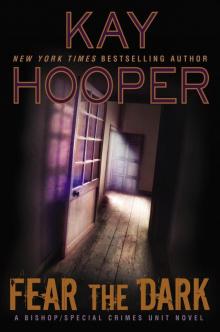 Fear the Dark
Fear the Dark Illegal Possession
Illegal Possession Stealing Shadows
Stealing Shadows If There Be Dragons
If There Be Dragons Once a Thief
Once a Thief In Serena's Web
In Serena's Web On Wings of Magic on Wings of Magic
On Wings of Magic on Wings of Magic Hostage
Hostage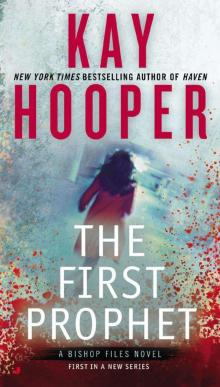 The First Prophet
The First Prophet Through the Looking Glass
Through the Looking Glass Golden Flames
Golden Flames Finding Laura
Finding Laura Haven
Haven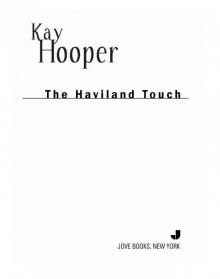 The Haviland Touch
The Haviland Touch The Lady and the Lion
The Lady and the Lion Haunted
Haunted Velvet Ligntning
Velvet Ligntning Blood Ties
Blood Ties Adelaide, the Enchantress
Adelaide, the Enchantress The Matchmaker
The Matchmaker Golden Threads
Golden Threads The Haunting of Josie
The Haunting of Josie Rafferty's Wife
Rafferty's Wife Amanda
Amanda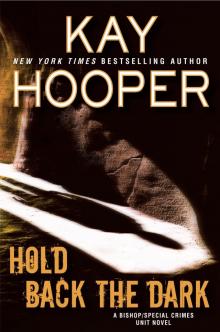 Hold Back the Dark
Hold Back the Dark Sense of Evil
Sense of Evil What Dreams May Come
What Dreams May Come Larger Than Life
Larger Than Life Enemy Mine
Enemy Mine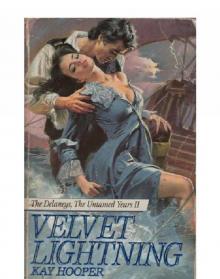 Velvet Lightning
Velvet Lightning The Fall of Lucas Kendrick
The Fall of Lucas Kendrick Aces High
Aces High Captain's Paradise: A Novel
Captain's Paradise: A Novel The Wizard of Seattle
The Wizard of Seattle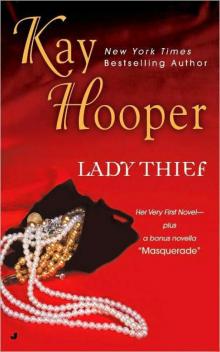 Lady Thief
Lady Thief Summer of the Unicorn
Summer of the Unicorn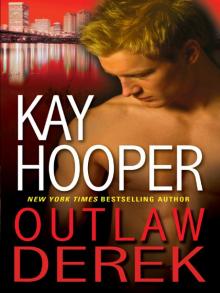 Outlaw Derek
Outlaw Derek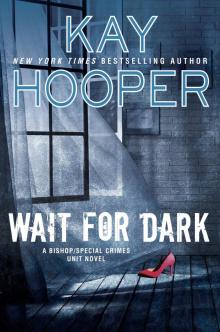 Wait for Dark
Wait for Dark The Glass Shoe
The Glass Shoe It Takes a Thief
It Takes a Thief Zach's Law
Zach's Law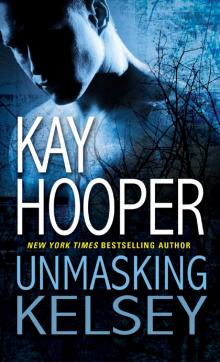 Unmasking Kelsey
Unmasking Kelsey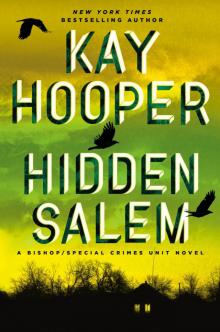 Hidden Salem
Hidden Salem